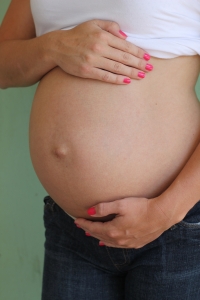Home >> Glossary, My Pregnancy, Pregnancy Hormones >> Cortisol
Cortisol
Cortisol, also known as hydrocortisone, is a glucocorticoid or adrenal hormone which has an integral role in your pregnancy. Cortisol, like ACTH, is a stress hormone your body produces in reaction to none other than stress. Cortisol is always present in your body and steadily increases throughout your pregnancy as it is a process that puts your body under a lot of pressure. Cortisol tends to reach peak levels in your third trimester, just before labour when you’re body will probably be under the most stress of your life. Don’t worry though, you can do it!
During your pregnancy cortisol is responsible for:
- Suppressing your immune system so that your body creates a hospitable environment for your baby in the early stages of your pregnancy.
- Regulating blood flow between your baby and the placenta.
- The development of your baby’s brain, especially in the third trimester.
- And, of course, preparing your body for labour.
However, excess cortisol in your body can cause complications and even make conception difficult. This is why it is vital that you avoid being stressed during your pregnancy. Possible complications include:
- Low birthweight
- Developmental delays
- Metabolic diseases in your baby’s later life
- Pre-eclampsia
- Premature birth
- Miscarriage
What does cortisol do to your body?
Like many of your pregnancy hormones, cortisol can be blamed for several of your pregnancy symptoms, including:
- Pregnancy brain, which is particularly pronounced in your third trimester when you find it impossible to remember the simplest things.
- Mood swings, which your partner, family and friends are probably noticing even more than you are.
- Postpartum depression, if your cortisol levels take too long to drop or drop too rapidly after you give birth.
Tags: ACTH, adrenal hormones, birth, conception, cortisol, labour, miscarriage, postpartum depression, preeclampsia, pregnancy, pregnancy brain, pregnancy hormones, pregnancy symptoms, pregnant, premature birth, prostaglandin, stress hormones, trimester 3

